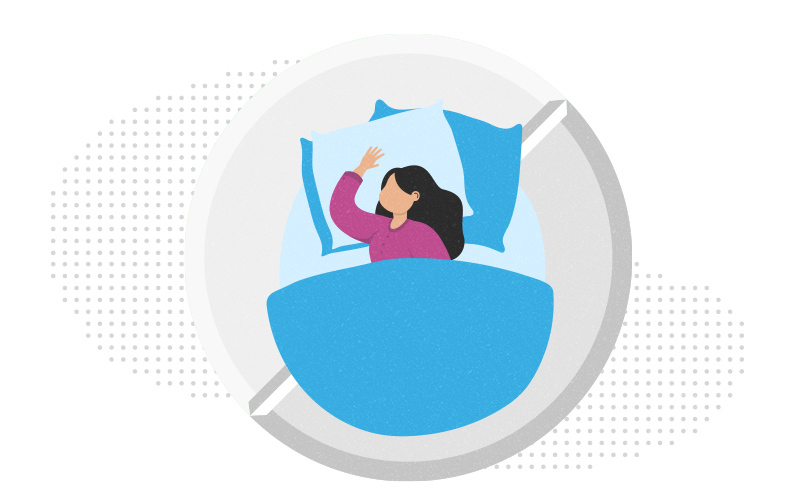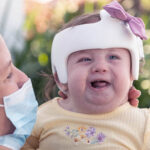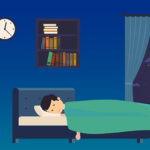Melatonin for kids: Is it effective? Is it safe?

You’ve heard melatonin — an over-the-counter hormone supplement — can help with insomnia. Perhaps your pediatrician has recommended it. But is it really beneficial, and can your child take it safely? A recent study from the Centers for Disease Control and Prevention (CDC) raises some concerns. It found an alarming six-fold increase in the past decade in the number of children and teens reported to poison control centers for melatonin ingestion.
We checked in with Dr. Judith Owens, co-director of the Sleep Center at Boston Children’s Hospital, and Dr. Michael Toce in the Division of Emergency Medicine, who specializes in toxicology and was a co-investigator on the CDC study. Their answer is: Melatonin may be beneficial for some children who have difficulty falling asleep, when the supplement is accompanied by a behavioral program to address the sleep problems. It is probably safe when used appropriately, at the correct dose for age, and in consultation with a health care provider.
What is melatonin?
The melatonin available over the counter at drug and health food stores is a synthetic form of a hormone our brains naturally produce to help us fall asleep. Our own melatonin helps regulate the circadian clocks that control not only our sleep/wake cycles but virtually every function of our bodies.
Melatonin is normally released by the brain in the evening, stimulated by darkness. In the morning and during the day, it’s largely shut off.
Synthetic melatonin mimics the effects of our own melatonin. It has both a “hypnotic” (sleepiness-inducing) effect when given in larger doses (3 or 5 mg) shortly before bedtime and a “chronobiotic” effect (shifting the body’s circadian rhythms so that sleep occurs earlier) when given in much smaller doses (½ mg) earlier in the evening. A bedtime dose is typically recommended for children who have difficulty falling asleep.
Studies suggest that use of synthetic melatonin does not suppress the body’s natural production of the hormone.
Can melatonin help my child sleep?
There is good scientific evidence that melatonin can shorten the time to fall asleep in children with insomnia, including children with ADHD, autism, and other neurodevelopmental disorders. While melatonin can be an effective short-term solution to address bedtime problems, children with neurodevelopmental disorders may benefit from longer-term use in some cases. It should be noted that the “immediate release” formulation does not help with difficulty staying asleep (melatonin levels in the blood peak at about 2 hours after it’s given). There is some evidence to suggest that extended-release melatonin may help with night awakenings in children, but there are far fewer studies to support this use, and the extended-release formulations typically require the ability to swallow capsules.
There are many reasons why children may have trouble falling asleep: anxiety, restless legs symptoms (an urge to move the legs at bedtime, often associated with uncomfortable feelings in the legs), circadian rhythm changes (a “night owl” sleep preference), or a too-early bedtime are just a few. Before considering melatonin, have your pediatrician conduct a thorough evaluation for other potential causes.
Caveats in using melatonin
If, after a thorough assessment, melatonin use seems appropriate in a given child with insomnia, it should never be a “stand alone” solution and should always be accompanied by behavioral interventions. These include temporarily delaying the bedtime to more closely match the actual fall asleep time, using “check-ins” at bedtime, and providing positive reinforcement for staying in bed. Paying attention to healthy sleep practices like having a regular bedtime and wake time seven days a week and having a regular bedtime routine are also key. Case in point: melatonin won’t help a child or teen who’s on their electronic device just before bed. These light-emitting devices suppress the body’s natural release of melatonin.
Not all melatonin is alike
What you see may not be what you get when it comes to melatonin. A recent study measured the actual amount of melatonin in 31 different brands and found a huge amount of variation from the melatonin content listed on the label, both significantly less than and greater than the claimed amount. This variability was found across brands and even from one lot to another within a given brand. Some products also have other components added. For these reasons, we strongly recommend use of “pharmaceutical grade melatonin” to produce reliable and consistent effects (this can be found online).
You should also be aware that many non-sleep products may contain melatonin as a secondary ingredient. Two examples are children’s “nighttime cough syrup” and “relaxation” drinks. Always check the label.
In general, melatonin should not be given to healthy, typically developing children under age 3, as difficulties falling and staying asleep in these children are almost always behavioral in nature. Furthermore, children younger than age 5 are much more likely to accidentally ingest melatonin, especially in “child-friendly” forms like gummies.
Melatonin is also used as part of the treatment program for teens with a circadian rhythm disorder called “delayed sleep phase” in which the natural fall asleep and wake times are much later than normal (by three hours or more) and interfere with normal daily activities. Management usually includes gradually adjusting the sleep schedule and avoiding light exposure in the evening with increased light in the morning in addition to melatonin, and is best carried out by a sleep specialist.
Finally, melatonin should not be used in children without sleep problems just to “help them get better/more restful sleep,” as advertised for some pediatric melatonin products.
Is melatonin safe for children?
It’s no wonder parents are uncertain about this. If you surf the web, you’re likely to get mixed messages, with some experts sounding an alarm and others saying it is harmless.
In general, when used properly, melatonin seems to have relatively few side effects in children, most of them minor, such as headaches, increased bedwetting, nightmares, dizziness, mood changes, and morning grogginess, all of which disappear with discontinuation. However, there are ongoing concerns based on studies in animals showing melatonin can affect puberty-related hormones. While there is very little evidence to suggest this is true in humans, the reality is no long-term clinical trials, which would settle the question, have yet been conducted.
When should melatonin not be used?
As mentioned above, children lose sleep for many reasons. Avoid melatonin:
- if the insomnia is situational (stemming from anxiety about a new school year, for example)
- if the insomnia is short-term (caused by an ear infection, for example)
- if the insomnia is due to an underlying physical cause (like sleep apnea or restless legs)
- if your child is younger than 3.
Melatonin should never substitute for healthy sleep practices: a regular, age-appropriate and consistent bedtime and bedtime routine, no caffeine, and no electronics or screens before bedtime.
What if my child accidentally ingests melatonin, or deliberately overdoses?
The CDC study found a surge in reports of pediatric melatonin ingestions to poison control centers over the past decade, in keeping with skyrocketing melatonin sales. Most ingestions were accidental and involved children under age 5; many melatonin products are sold as gummies and are easy to mistake for candy. But there has also been an increase in intentional overdoses of melatonin by adolescents as a means of self-harm.
Most — but not all — of these ingestions are relatively harmless. In the CDC study, about 80 percent of children had no symptoms; the main symptoms seen were drowsiness, upset stomachs, vomiting, and headaches. Of more than 260,000 ingestions in the 10-year period, about 4,000 children were hospitalized, and a handful needed to be put on ventilators. Most of those hospitalized were teenagers whose ingestions were deliberate. Two children died.
If you’re concerned about your child accidentally ingesting melatonin, or deliberately overdosing on melatonin, call the Poison Control Center at 800-222-1222. (This is a national number that will route to your regional poison control center.)
What’s your bottom-line advice?
Use melatonin only under the supervision of a health care provider, and follow their guidance on dosing. Melatonin is likely to have the least risk and the most benefit if your child has significant difficulty falling asleep and when it is used in combination with behavioral interventions and healthy sleep practices. Finally, treat melatonin as you would a prescription drug and keep it well away from children for whom it’s not intended — on a high shelf and preferably in a locked cabinet. Avoid referring to any medication as candy!
Learn more about the Boston Children’s Sleep Center.
Related Posts :
-

With support for genetic condition trisomy 18, Brooklyn ‘tells her own story’
Erin and Tim Haggan quickly realized they would always be seeking answers after learning the child they were expecting had&...
-

Eight tips to get your kids on a good sleep schedule
If your kids are staying up past midnight and not getting out of bed until after noon, they are in ...
-

Why families need routines (even in the summer)
They say you don’t know what you have until it’s gone. Maybe no one has realized this more ...
-

Miles for Jack: Robin sequence and the bond between a family and doctor
For runners and non-runners alike, next week’s Boston Marathon is extra special. It marks a beloved tradition for the ...





